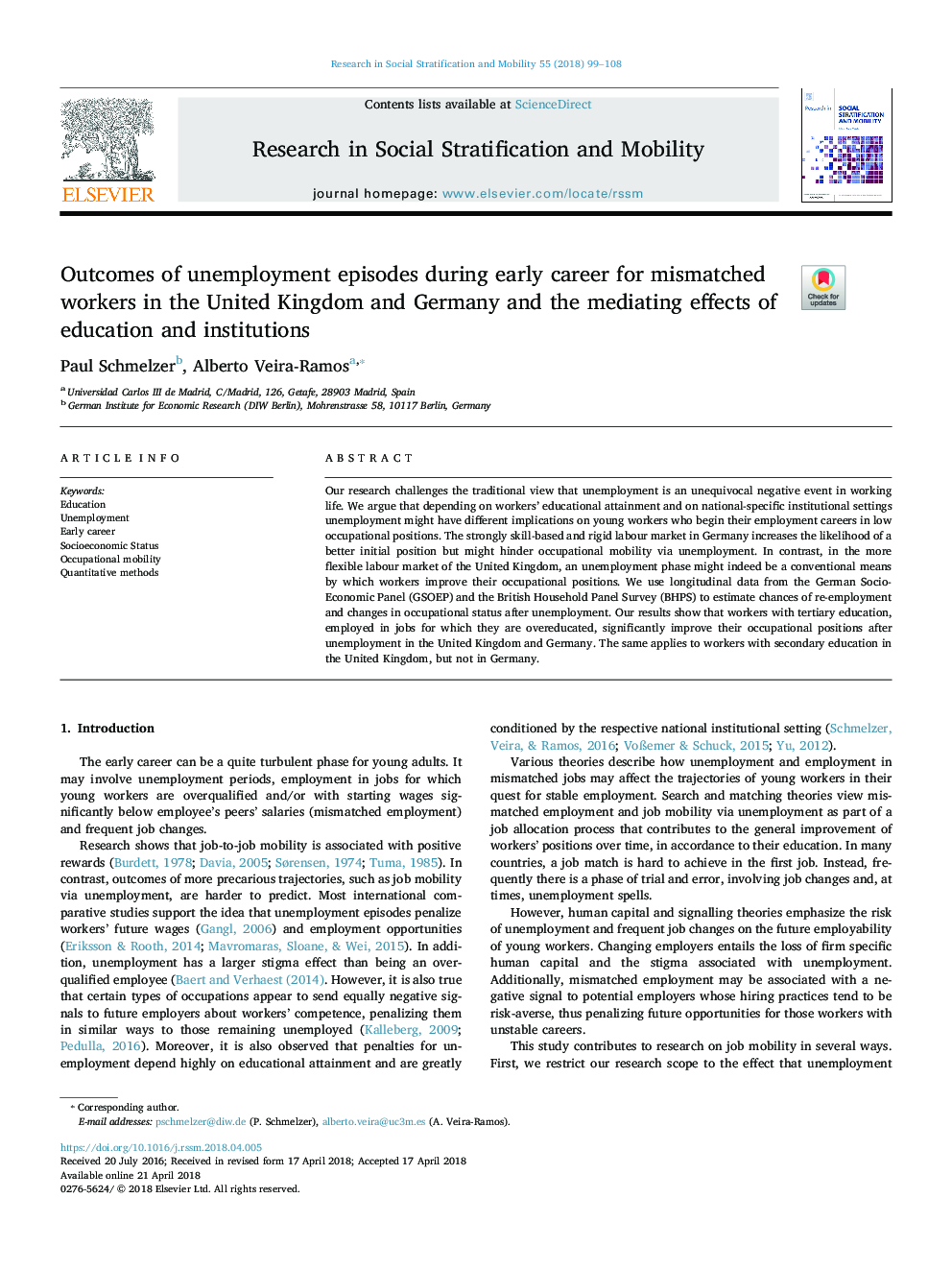| Article ID | Journal | Published Year | Pages | File Type |
|---|---|---|---|---|
| 7409882 | Research in Social Stratification and Mobility | 2018 | 10 Pages |
Abstract
Our research challenges the traditional view that unemployment is an unequivocal negative event in working life. We argue that depending on workers' educational attainment and on national-specific institutional settings unemployment might have different implications on young workers who begin their employment careers in low occupational positions. The strongly skill-based and rigid labour market in Germany increases the likelihood of a better initial position but might hinder occupational mobility via unemployment. In contrast, in the more flexible labour market of the United Kingdom, an unemployment phase might indeed be a conventional means by which workers improve their occupational positions. We use longitudinal data from the German Socio-Economic Panel (GSOEP) and the British Household Panel Survey (BHPS) to estimate chances of re-employment and changes in occupational status after unemployment. Our results show that workers with tertiary education, employed in jobs for which they are overeducated, significantly improve their occupational positions after unemployment in the United Kingdom and Germany. The same applies to workers with secondary education in the United Kingdom, but not in Germany.
Keywords
Related Topics
Social Sciences and Humanities
Economics, Econometrics and Finance
Economics, Econometrics and Finance (General)
Authors
Paul Schmelzer, Alberto Veira-Ramos,
